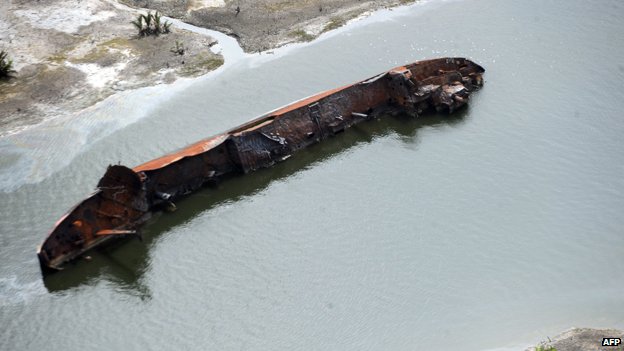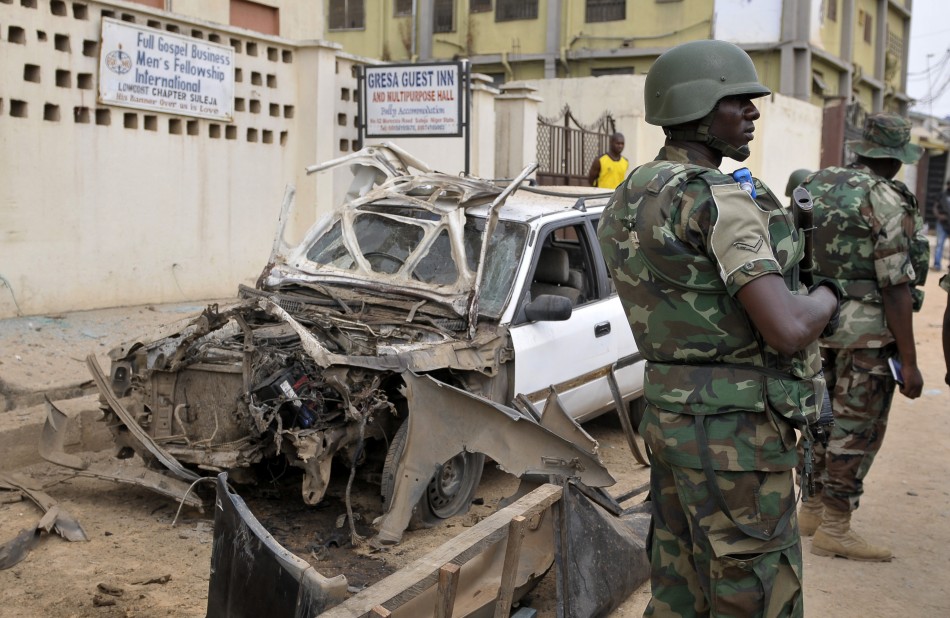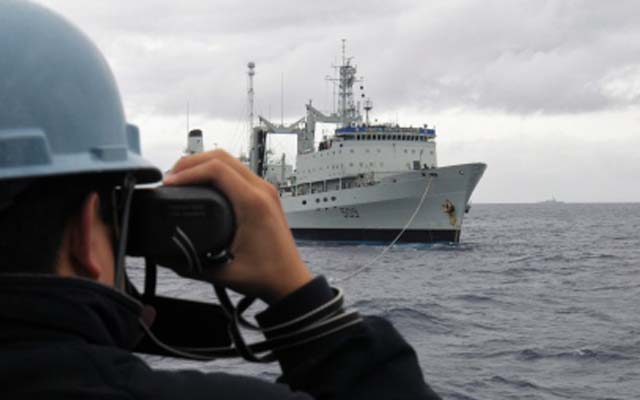Piracy in the Gulf of Guinea, which covers coastline from Ghana south to Gabon, is not a new concern. For the first decade of the 21st century, small craft belonging to oil companies operating in the area were at risk of pirate attack. Piracy was also extensive on land, as over a hundred local militias in the Niger Delta jockeyed to procure illegal oil for export to other locations in West Africa and abroad. In the past several years, militias and maritime smugglers have acquired better weapons and are more aggressive than they once were. Though many incidents of piracy go unreported, the number of incidents of piracy in the Gulf of Guinea has increased markedly; in 2012, the level of piracy in West African waters surpassed the East, becoming the most pirated in the world.
Piracy and smuggling in and off the coast of Nigeria is particularly aggressive. Nigeria joined OPEC in the mid-1970s, after which oil wealth rushed into government coffers; today, oil accounts for 95 per cent of Nigeria’s export earnings and 80 per cent of its total revenue. Oil revenues have led to pervasive corruption in government and public service, while the Ogani, Ijaw and other ethnic minorities in southeast Nigeria struggle with the human rights and environmental challenges that stem from the operation of large multinational oil companies in the area.
[captionpix align=”right” theme=”elegant” width=”400″ imgsrc=”http://swzonline.nl/sites/default/files/styles/article-full/public/main/articles/Piracy%20live%20map%20IMB%20July%202013.jpg” captiontext=”2013 Live Piracy Map. Via IMB Piracy Reporting Centre”]
The Ogani people became known internationally in the 1990s for the creation of their ongoing Movement for the Survival of the Ogani People (MOSOP), which targeted Shell’s operations in particular. MOSOP leader Ken Saro-Wiwa initiated a nonviolent campaign against environmental destruction in the Niger Delta and was an outspoken critic of the Nigerian government’s corruption and reluctance to enforce environmental regulations. Ken Saro-Wiwa and eight other Ogani activists were executed in November 1995 on the pretense that they had been involved in the murders of four Ogani elders.
In the first few years of the 21st century, the Niger Delta became increasingly militarized. Militia groups active in the 2000s procured oil through a process called ‘bunkering,’ in which an oil pipeline is tapped and the oil siphoned onto a barge for export. Bunkering remains a serious issue in Nigeria, threatening revenues from official oil export. Though much of the bunkered oil leaves Nigeria, not an insignificant amount of crude stays in Nigeria to be refined at illegal facilities scattered across the Delta. The illegal refineries are environmentally devastating; the ground around the refineries is saturated with spilled oil and volatile make-shift pipelines may explode without warning.
In addition to illegal groups operating on land, the Gulf of Guinea is a naturally attractive target for maritime smugglers. Nigerian waters are particularly dangerous; according to the International Maritime Bureau’s (IMB) piracy reporting centre, 22 of the 31 incidents of piracy in the Gulf reported so far this year took place off the coast of Nigeria. Extreme poverty, militant activities, government corruption and environmental damage contribute to insecurity in the Niger Delta. These insecurities, complemented by a weak naval presence and poorly demarcated maritime boundaries, encourage piracy in the region.
While piracy off the coast of West Africa is on the rise, it has declined in East Africa and the rest of the globe. Incidents of Somali piracy declined markedly between 2011 and 2012, and compared to Nigeria’s 22, there have only been nine incidents of piracy involving Somali pirates in 2013. It is yet unclear whether the crackdown on pirates operating in East African waters has spurred them to move their activities westward across the continent.
It is important to recognize that maritime piracy in the Gulf of Guinea is inextricably linked to degradation of the environment in the region. Pirates target the tankers and offshore oil rigs scattered throughout Nigerian waters, perpetuating the cycle of environmental destruction and human health risks that stems from the operation of multinationals in the region.
The Niger Delta was a region ‘in-vogue’ in the 1990s among the media and human rights and environmental activists. For a time, the execution of MOSOP leaders and the destructive activities of Shell, Chevron and other multinational petroleum companies captured the world’s attention. In the second decade of the 21st century, we have heard more about the BP spill in the Gulf of Mexico and the intense natural disasters that have plagued the globe in the last decade.
A United Nations Environment Programme report asserts that contamination of soil and water in the Niger Delta is so extensive, a cleanup of Oganiland alone would cost $1 billion and span 30 years. Further, piracy off the Nigerian coast is increasing in frequency and scope, while illegal refineries continue to spring up in the Delta. The international community must turn its attention back to Nigeria and the plight of West African peoples, ramping up security in the face of dire consequences for human health, the environment and the economy if piracy persists.




